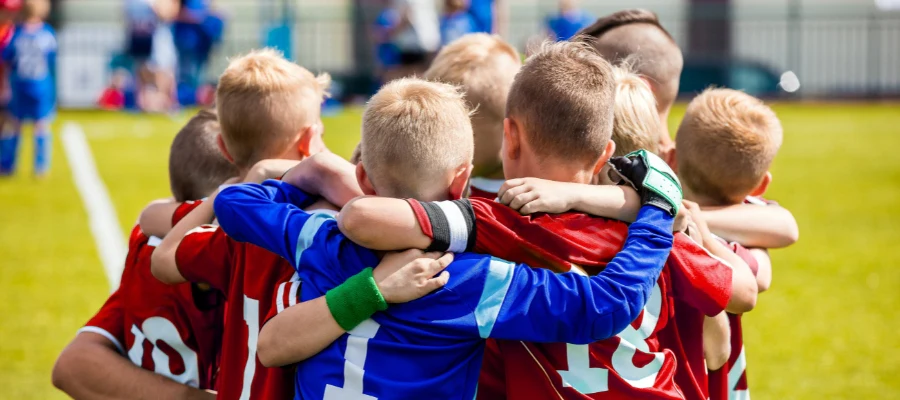Introduction
Team sports offer much more than physical exercise. For children, participating in team sports helps build character, instill valuable life skills, and foster emotional growth. From teamwork to discipline, these experiences shape kids for their future in ways beyond the playing field.
1. Teamwork and Cooperation
One of the most significant lessons kids learn through team sports is teamwork. Whether it’s soccer, basketball, or baseball, kids are taught how to work cooperatively with others to achieve a common goal. They understand that each member’s contribution matters, and success is shared among the whole team. Learning to collaborate and respect others’ roles builds strong, lasting interpersonal skills.
2. Discipline and Commitment
Sports require dedication, both in practice and in preparation. Kids learn that success doesn’t come overnight but through consistent effort and practice. Coaches instill a sense of responsibility, teaching children to balance their time between sports, schoolwork, and home responsibilities. The discipline and commitment cultivated during sports translate to other areas of life, such as academics and personal goals.
3. Perseverance and Resilience
Life isn’t always about winning, and neither are sports. Kids experience losses, setbacks, and challenges. Through team sports, they learn to persevere, even when the odds are stacked against them. Whether it’s losing a match or missing a goal, children are taught resilience and the importance of continuing to push forward despite difficulties. This valuable trait is essential for overcoming obstacles in all aspects of life.
4. Building Social Skills and Friendships
Team sports are a great way for kids to interact with peers, build friendships, and enhance social skills. These environments teach them how to communicate effectively, resolve conflicts, and manage different personalities. Being part of a team gives children a sense of belonging, helping them form friendships that often extend beyond the game.
5. Respect for Authority and Rules
In any team sport, kids learn the importance of respecting authority figures such as coaches, referees, and even their own teammates. Adhering to rules and understanding the structure of the game are key lessons that children take with them into their daily lives. This respect for rules and authority prepares them for future settings, whether in the classroom or the workplace.
6. Physical Fitness and Healthy Living
Sports naturally encourage physical activity, helping kids develop a habit of staying fit and active. Beyond the physical benefits, they also learn about healthy eating habits, hydration, and maintaining a balanced lifestyle. These practices, instilled at a young age, can promote lifelong health and well-being.
7. Leadership and Responsibility
Being part of a team also offers opportunities for children to take on leadership roles, whether as team captain or through mentoring younger players. This fosters a sense of responsibility, as they learn to guide others and set a positive example. Leadership skills learned in sports help them grow into responsible, dependable adults.
Conclusion
Team sports provide children with invaluable life lessons that extend far beyond the field. From teamwork and discipline to perseverance and leadership, the skills they develop help shape their character and equip them for the challenges of the future. By encouraging your child to participate in team sports, you’re not just promoting physical activity — you’re nurturing their emotional and social growth as well.

